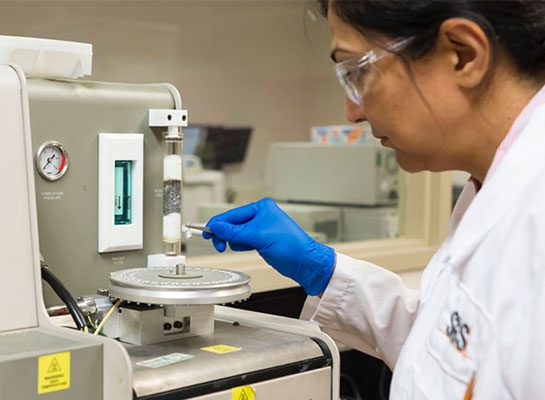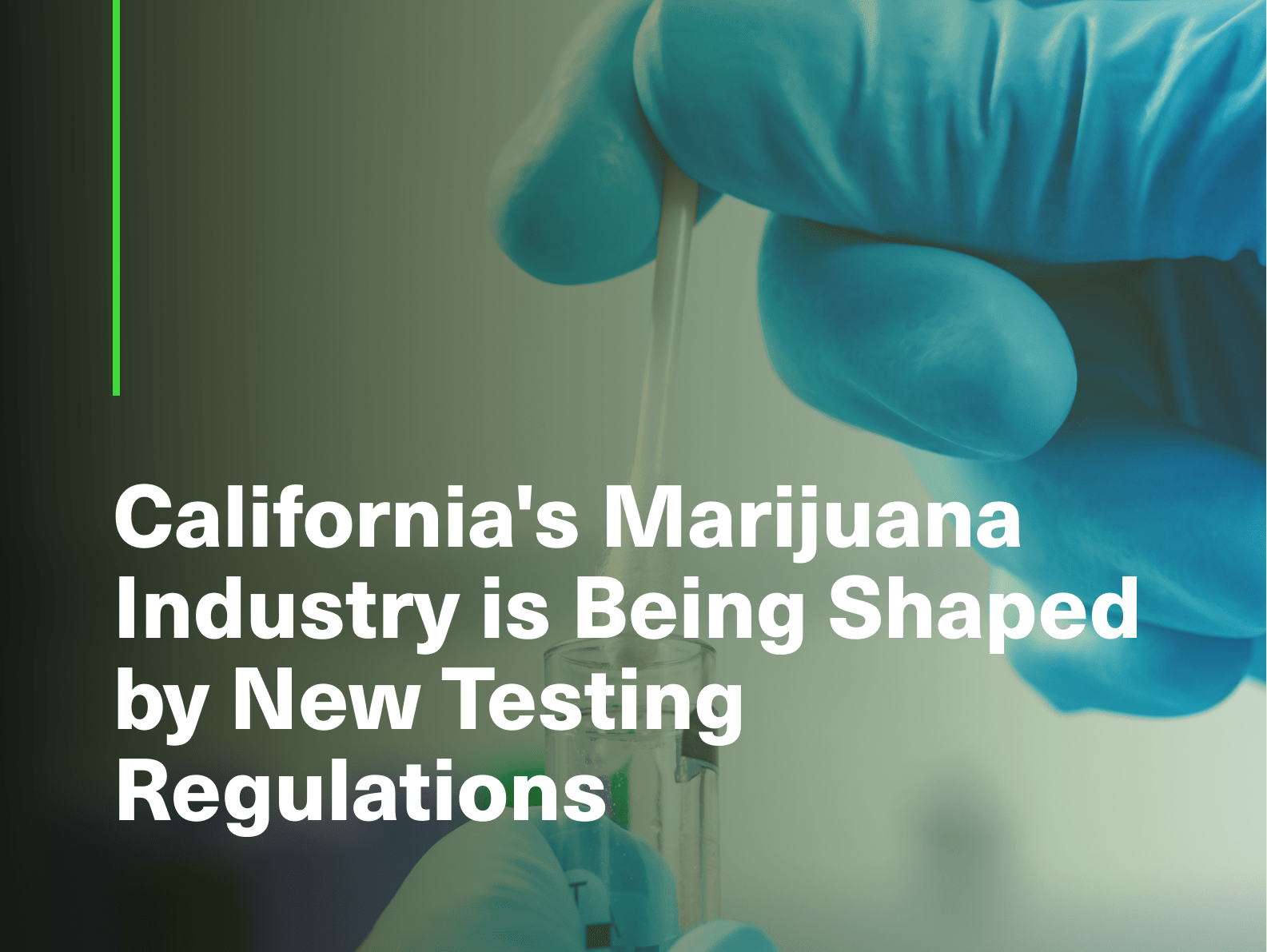The California cannabis industry being covered in the national news is no surprise these days, but right before July 1, the storyline changed. “California pot shops slash prices ahead of new testing rules” was NBC’s headline.
So what changed on July 1 and what does this mean to you as you consider your cannabis investment options?
Legal Background
As the California rulemaking bodies labor to craft and install the long-awaited final cannabis legislation, their Emergency regulations are still in place. They include a timeline for moving licensees towards compliance with the nation’s most strict cannabis testing requirements. Licensed retail stores and delivery services in the state were given some time to convert their supply chain with a hard deadline of July 1 when only those products tested by the small number of licensed cannabis testing labs became legal to sell.
With the supply chain already choked by the current set of tests, there is more trouble headed its way as the list of elements for which there needs to be testing expands even more on January 1, 2019. In a letter to Governor Jerry Brown and Lori Ajax, head of the state’s Bureau of Cannabis Control, cannabis industry leaders begged for an extension citing shortages of licensed labs and a stockpile of pre-deadline inventory. This request was denied and there are no signs the state will back down on this requirement or its extension in 2019.
Making matters even more complicated is that fact that contrary to other states where cannabis is licensed, California’s cannabis testing labs are required to go to their customers place of business, mostly licensed Distributors who supply the Dispensaries with their finished goods, and they obtain random samples for each batch of cannabis flower or products while under video surveillance. Once the samples are logged, they are then returned to the cannabis testing lab for analysis. This additional step when compared to other states further stretches the resources of the few labs that are operational in the state.
Reasons for Shortage of Cannabis Testing Labs
There are a few reasons why the roster of licensed labs includes only 33 businesses at this time, some of which are duplicate, related companies and many are not yet open due to lack of funding or the length of time it takes to build out, equip and staff their operation.
- A cannabis testing lab may not share ownership with any other cannabis licensee. To ensure independence, the state requires a division of all other licensed operators from testing. Therefore, the vertically integrated operations and investment funds that have developed are excluded from this portion of the business entirely.
- A view that Investing in a cannabis testing labs is not seen as sexy or explosive when compared to the brands that will be developed for the shelves. Investing in the “green rush” is a hot topic at every cocktail party in the US right now and becoming a regular on CNBC as more companies go public each week in Canada or even now in the US. But the high (pun intended) that investors are seeking when they dream of riding this green wave to riches is squarely focused on two sectors – growing marijuana or selling it, which the statutes refer to as Cultivation and Retail. Testing is overlooked completely due to a lack of knowledge and ignored completely when big exit strategies, like selling to Phillip Morris, Pfizer or Budweiser are discussed.
- You need locally permitted real estate to start and operate a cannabis testing lab. While the demand is incredible, the margins very strong and the real estate and equipment investment is large but not unreasonable, investors in a cannabis testing lab still need a City to allow them to operate. With most California cities still sitting out legalized cannabis, prohibiting it according to their right due to fear and uncertainty about its impact on their community, the very organizations that are designed to ensure product safety are likewise forbidden.
- Access to traditional business banking, especially loans, remains almost non-existent. Federally regulated banks and traditional lenders are still on the sidelines when it comes to cannabis loans so any investor in a testing lab startup has to personally contribute the capital or may be able to tie a loan to non-cannabis property or assets as collateral to obtain funding.
Opportunity To Invest In A Start-Up Cannabis Testing Lab
If you aren’t entranced by the big exit or unwilling to suffer the inevitable big failures as brands fight for market share, and are looking for a more traditional way to enter the cannabis industry, investing in a cannabis testing lab may be the play. It’s one of just a few license-carrying “pick and shovel” support company options.
Here’s a short list of reasons why investing in a cannabis testing lab may be right for you:
- Strong and growing demand from a state-mandated set of customers. With the bottleneck currently choking the supply chain only expected to grow more severe as more retail is opened up, the demand for testing shows no chance of slowing.
- Large gross profits from repeat customer base. As labs set their own pricing that could include premiums for the rush services that distributors and brands so desperately need, the sky may be the limit for per test rates. Other than the collection of samples, much of the work is automated or systematized in a way that drives high gross margins after the original capex investment (if not leased).
- Your clients are B2B licensees only. Rather than worry about operating a 12+ hour, 365 day retail operation, your company will be selling to state-vetted, fellow licensees on a repetitive basis, building strong relationships of trust if you can deliver quality service in a timely manner.
- Short list of competitors in the space and fewer looking to enter this lane of the cannabis business than others. BeGreenLegal estimates over 100,000 test panels will be needed to satisfy just the 2020 California market and the short list of 30 some operators today will need all the company they can get to satisfy this demand. Additionally, almost all investors, especially the big funds and brand builders, will be frozen out of this sector by law due to conflicts.
- Relatively high barriers to entry – financial, real estate, skills. Of the narrow group of people intrigued by the opportunity within the cannabis testing lab space, most do not have the financial wherewithal to self fund the sizable startup costs. This investment starts with acquiring access to permissible real estate, obtaining local and state approval and then quickly spreads to equipment and some heavy hitting staff members with science backgrounds and degrees to manage and operate the business.
- Opportunities to scale within and outside California. Once you are up and running your first location in California, the opportunities to scale via other in-state testing lab locations or through the use of hub and spoke model with remote collection services are enormous. Beyond our state borders, you will be well positioned with the IP and experience to expand to other states as they evolve their legal marketplaces.
- Outside the scope of the IRS 280e “penalty”. The impact of very short section in the IRS’ tax code, Section 280e , which receives very little media coverage, can be horrific on the financial health of any cannabis business that has a large sales and marketing effort. Since it prohibits these types of non-COGS expenses as deductions from income, a licensee’s effective tax rate can effectively quadruple or more compared to a traditional retailer or distributor. But according to experts, a testing lab’s function appear to rest outside the scope of this section.
Summary
In the current often blurry version of the legal cannabis industry in the State of California, nothing is more clearly in focus than the need for more testing labs as part of the supply chain and the financial opportunity for those individuals that invest in and operate these labs effectively.
With the right advice and team behind and alongside, you will build a company that takes on the challenge of ensuring that the cannabis products consumed by patients and consumers statewide are safe and labeled appropriately. And along the way, build a cash flow and profit stream that makes people at that party forget about branding and want to know how you did it.





